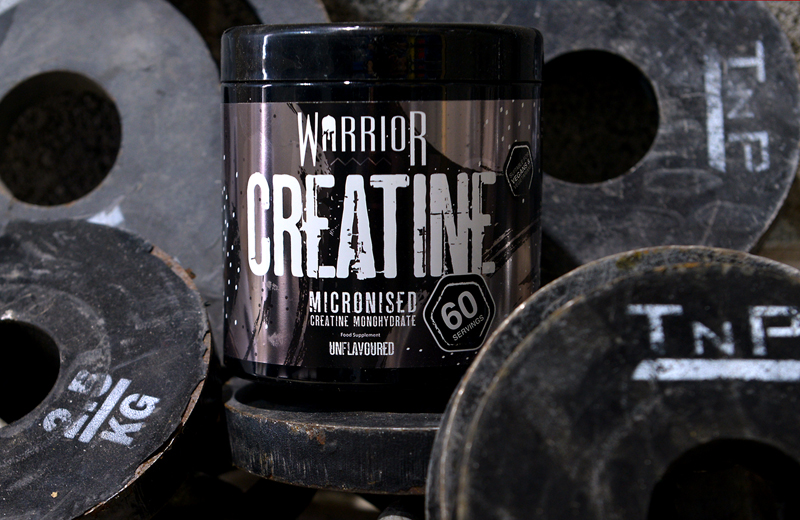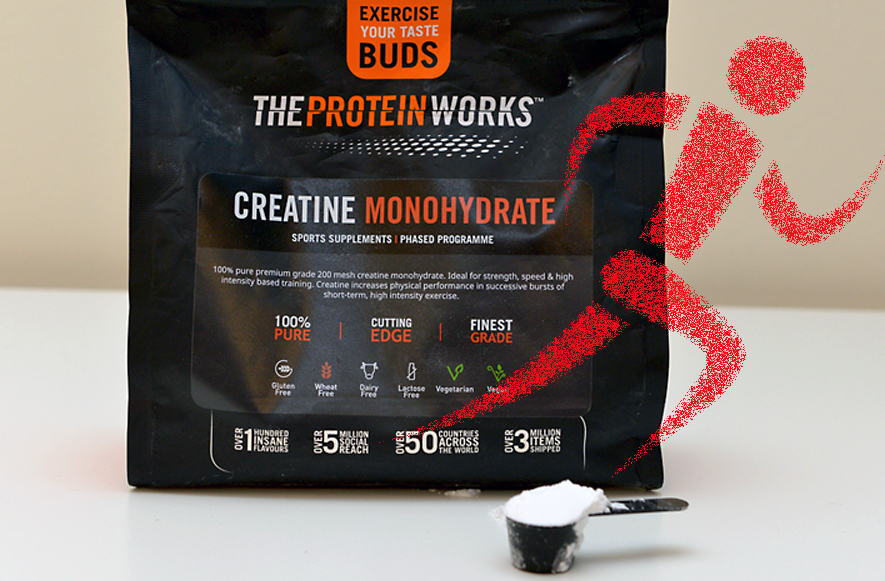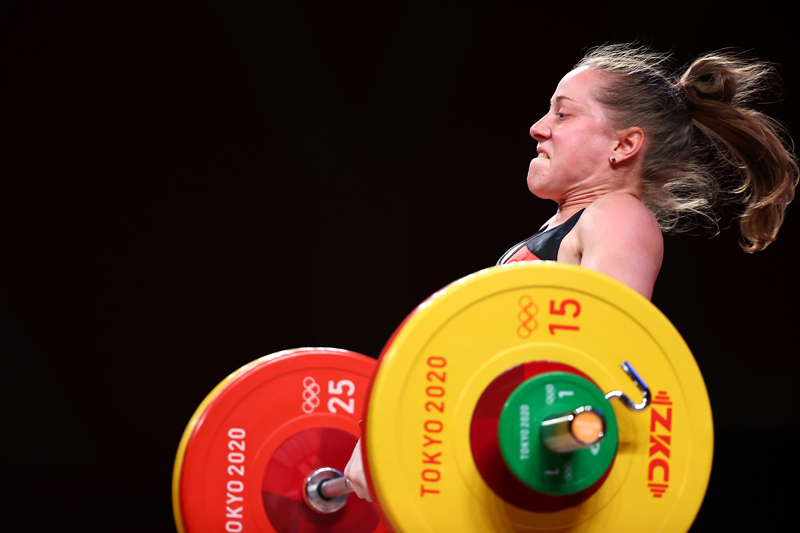You are viewing 1 of your 1 free articles. For unlimited access take a risk-free trial
Nutrition: can BCAA supplementation help sports performance?

The use of branched chain amino acid (BCAA) supplements to enhance sport performance has grown into a multi-million dollar industry. But although there’s a scientific rationale for some of the performance claims, the reality is far less clear-cut, as Kevin Tipton and Sarah Jackman explain here.
Amino acids can be classed as either ‘essential’ or ‘non-essential’. Essential amino acids are those that must be consumed in the diet because the body can’t synthesise them. Of the eight generally termed essential amino acids, the three ‘branched chain amino acids’ – isoleucine, leucine and valine – are often considered to be the most important, especially in relation to exercise.
Supplementation of BCAAs has been advocated for many purposes, including enhancing exercise performance and recovery. In this article, we’ll look at evidence for and against these claims, based on objective research from peer-reviewed scientific publications. Our major focus will be on research conducted in humans.
Claim 1: BCAA supplementation with resistance exercise increases muscle mass
Increased muscle mass can benefit performance and comes from increasing the amount of the structural proteins in muscle, such as actin, myosin, troponin, etc, which are collectively known as the myofibrillar proteins.The balance between synthesis and breakdown of these proteins over a given time period will determine changes in muscle size. Stimulating muscle protein synthesis, and thus resulting in a positive net muscle protein balance, is the metabolic mechanism for increased muscle size.
Resistance exercise increases muscle protein synthesis via stimulation of signalling pathways inside the muscle cells that have been contracted. However, without increased availability of amino acids – from ingestion of protein or amino acids in food or in supplements – positive protein balance will not occur. Increased amino acid intake is necessary for two reasons – to stimulate the signalling pathways and to provide building blocks for the new proteins being synthesised. Thus, for increased muscle mass, a source of amino acids should be consumed in conjunction with regular resistance exercise to stimulate muscle protein synthesis and net muscle protein balance.
BCAAs, particularly leucine, stimulate the muscles’ signalling pathways. In rats that ran on a treadmill for two hours, muscle protein synthesis was decreased following the exercise(1). Leucine ingestion stimulated the signalling pathways and increased protein synthesis such that it returned to pre-exercise levels. This study is often used as the argument for BCAA supplementation in terms of increasing muscle protein synthesis and thus muscle mass.
However, it is important to note that, unlike the situation in humans, muscle protein synthesis was decreased by the exercise in these rats.The leucine merely returned muscle protein synthesis in the rats to levels observed before the exercise. So while in this ‘catabolic state exercise model’ leucine seems to be very effective, it is not certain that the stimulation of the pathways by leucine would be additive to the stimulation of resistance exercise in humans.
Researchers in Sweden investigated the impact of BCAA ingestion following resistance exercise on the signalling pathways in muscle. They found that BCAA supplementation stimulated the signalling over that of exercise alone(2).Unfortunately, the response of subsequent muscle protein synthesis was not measured. In fact, rather surprisingly, no study has ever measured muscle protein synthesis in humans in response to leucine (or BCAA) ingestion following resistance exercise!
There is a good metabolic reason to believe that while the BCAAs could stimulate the signals in the muscle, this increased signalling would not result in increased synthesis because of decreased availability of other amino acids in the blood. Thus, protein synthesis would be limited(3).
Other researchers in Holland have demonstrated that the addition of protein to carbohydrates following resistance exercise increases muscle protein synthesis(4). However, addition of extra leucine to the carbohydrate-protein mixture did not result in a further increase. It is likely that muscle protein synthesis is already stimulated as much as possible by an exercise/protein combination and that leucine cannot stimulate it further. In other words, there is a ‘ceiling’ effect.
This ceiling notion is supported by unpublished data from a study recently completed in a laboratory in Galveston, Texas. The addition of leucine to whey protein ingested prior to resistance exercise did not further increase muscle protein synthesis nor did it result in any difference in net muscle protein balance.
Ageing and inactivity are known to decrease signalling pathways in muscle and subsequent muscle protein synthesis when amino acids are given(5). Whereas muscle of young adults does not respond to excess leucine given in addition to other amino acids or protein, the muscle tissue in elderly persons does respond (6,7).
As with the rats we mentioned earlier, it seems that leucine supplementation may be effective when muscle is in a catabolic state (for summary, see figure 1). At this time more research needs to be conducted before we can definitively say that BCAA supplementation does not enhance muscle gains during resistance training. On the other hand, there seems to be potential for BCAA supplements to be effective for injured athletes and others. Studies on this aspect of leucine supplementation need more attention from the scientific community.
Claim 2: BCAAs enhance recovery from muscle damage as a result of intense exercise
Intense exercise, particularly with an eccentric component, may result in damage to muscles, increased muscle soreness and loss of muscle function. It is commonly claimed that BCAAs may alleviate this response to intense exercise.Two studies found reductions in soreness and blood markers of muscle damage with chronic(8) and acute(9) BCAA supplementation in conjunction with endurance cycling exercise. There is also a report of reduced soreness following squat exercise with ingestion of only 5g of BCAAs(10).
We recently completed a study in our laboratory at the University of Birmingham and found reduced soreness with BCAA supplementation following an eccentric bout of exercise. However, it should be noted that the subjects in these studies are generally untrained. No study to date, including ours, has found BCAA supplementation to have any impact on loss of muscle function. Therefore, the importance of BCAA supplementation may be limited to decreasing muscle soreness in untrained individuals.
Most athletes experience only minimal soreness in their regular training. Furthermore, it is unknown if athletes would respond similarly to the untrained subjects used in those studies. BCAA supplementation may therefore be potentially beneficial when returning from a period of rest or injury, or when starting a new training programme, but only in regard to reduced soreness.
Claim 3: BCAAs reduce central fatigue and enhance mental performance
Fatigue during very prolonged exercise such as ultramarathons and Ironman distance triathlons may be centrally mediated, as well as or instead of peripherally mediated. In other words, fatigue is due to changes in the central nervous system (CNS) and not the muscles.Of specific interest with regard to feelings of lethargy and fatigue during prolonged exercise is a connection with increases in brain levels of the brain neurotransmitter serotonin. This mechanism was proposed by a biochemist from London many years ago. We have illustrated the proposed mechanism for central fatigue and the potential impact of BCAA supplements in figure 2.
Briefly, serotonin is made from the amino acid tryptophan. Prolonged exercise leads to elevated levels of tryptophan in the blood; this in turn means more tryptophan transport into the brain, more serotonin production and thus – because serotonin causes lethargy and drowsiness – central fatigue.
Consistent support for this theory can be found in animal studies, but not studies involving humans. Support comes largely from one early field trial on BCAA supplementation during marathon running(11). However, the lack of control and questionable use of statistics makes it difficult to accept these findings.
Since then no study in humans at moderate temperatures has demonstrated an impact of BCAA supplementation on performance(12,13,14).Researchers in New Jersey reported that time to exhaustion during exercise in the heat was extended with supplementation of BCAAs(15), but subsequent studies failed to replicate this finding (16,17).
Similarly, mental performance can suffer during prolonged exercise. Improved mental performance from BCAA supplementation has been suggested with a rationale similar to that of central fatigue. Unfortunately, there are few studies examining the relationship between BCAA supplementation and improvements in mental performance. Some studies found that when BCAA ingestion was compared with a placebo, mental performance was improved(18,19,20). However, follow-up studies failed to replicate these results(15,16). At the moment therefore, no definitive conclusions can be drawn in relation to BCAA supplementation for improved CNS function during prolonged exercise.
Claim 4: BCAAs spare glycogen during exercise
It has long been recognised that muscle glycogen levels are critical for athletic performance, particularly in moderate- to high-intensity events. Glycogen is the main source of fuel for the muscles during exercise and low levels contribute to fatigue. Therefore if BCAAs can be used in preference to glycogen at early stages of exercise, glycogen can be spared and used later. Thus exercise performance may be enhanced.Claims related to BCAA ingestion and glycogen sparing are primarily based on animal studies(21,22). All information related to this issue has come from studies which were designed for other purposes. There is an indication that BCAAs reduce glycogen use during exercise from a couple of studies performed in Sweden(23,24,25). However, the changes are small and unlikely to be physiologically relevant. Others have clearly demonstrated no glycogen sparing during exercise with BCAAs ingestion(26,27). We conclude that, at least for now, there is no evidence to suggest that if BCAA supplements are taken they will help to spare glycogen.
Claim 5: BCAAs improve immune function
Intense exercise training can result in immunosuppression and athletes often report increased illness during intense training. In vitro evidence suggests that BCAA supplementation may help prevent immunosuppression. Immune cells oxidise BCAAs for energy and BCAA supplementation increases blood levels of the amino acid glutamine(28,29). In response to heavy training, glutamine levels fall, which is believed to be related to immunosuppression.In humans there are only two papers investigating the effect of BCAA ingestion and the immune system in exercise. Both were field-based trials using triathletes and runners(28,29). The data suggest that BCAA supplementation maintains blood glutamine levels, increases lymphocyte (immune cells) function and decreases reported incidence of illness in these athletes with 15-30 days of supplementation.
Whereas these data seem to strongly support the use of BCAAs with prolonged, intense training caution is warranted; these studies were field-based from only a single laboratory and it is difficult to adequately control field-based trials. More stringently controlled studies are needed to follow up these intriguing findings, and the jury is out until more studies from other laboratories confirm these findings.
Claim 6: BCAAs help with weight loss
Many athletes are very concerned with body composition. If dieting is used to lose fat, both fat and muscle will be lost. For many athletes, loss of muscle is undesirable. So, if energy intake can be reduced, but muscle mass maintained, then a more desirable body composition may be attained.There is now ample evidence that increasing the protein content of the food during low-calorie dieting will maintain muscle while weight is lost(30).The rationale for maintenance of muscle during weight loss with high protein intakes is often attributed to the increased intakes of BCAAs that occur(30). The idea is that BCAA ingestion during weight loss increases protein synthesis, which helps maintain muscle.
Studies in rats have shown a decrease in body fat with chronic leucine supplementation(31). However in lean, active humans there seems to be only one study addressing this issue at this time. French researchers measured body composition in wrestlers during 19 days of low energy intake(32).The group with high BCAA intake seemed to lose the most fat but all groups lost equal amounts of muscle. So, these results are not exactly in line with the theory.
Summary
There are many, many claims for the effectiveness of BCAA supplements related to athletic performance and exercise training; but while some have a solid theoretical rationale, most of these claims are dubious at best. Even where claims have a promising rationale, the actual evidence from well-controlled studies in humans is limited (see table 1 for a summary).To complicate the situation further, most studies demonstrating a beneficial role of supplemental BCAAs used untrained individuals; the implications of these findings to athletes are therefore currently unknown. Moreover, BCAAs can be found in a number of foods in relatively high amounts (see figure 3), and so supplements may not be necessary.
For all these reasons, more studies are needed to determine the effectiveness of BCAA supplements for sportsmen and women and thus caution is warranted before accepting the vast majority of the claims on websites, advertisements and labels!
Newsletter Sign Up
Testimonials
Dr. Alexandra Fandetti-Robin, Back & Body Chiropractic
Elspeth Cowell MSCh DpodM SRCh HCPC reg
William Hunter, Nuffield Health
Newsletter Sign Up
Coaches Testimonials
Dr. Alexandra Fandetti-Robin, Back & Body Chiropractic
Elspeth Cowell MSCh DpodM SRCh HCPC reg
William Hunter, Nuffield Health
Keep up with latest sports science research and apply it to maximize performance
Today you have the chance to join a group of athletes, and sports coaches/trainers who all have something special in common...
They use the latest research to improve performance for themselves and their clients - both athletes and sports teams - with help from global specialists in the fields of sports science, sports medicine and sports psychology.
They do this by reading Sports Performance Bulletin, an easy-to-digest but serious-minded journal dedicated to high performance sports. SPB offers a wealth of information and insight into the latest research, in an easily-accessible and understood format, along with a wealth of practical recommendations.
*includes 3 coaching manuals
Get Inspired
All the latest techniques and approaches
Sports Performance Bulletin helps dedicated endurance athletes improve their performance. Sense-checking the latest sports science research, and sourcing evidence and case studies to support findings, Sports Performance Bulletin turns proven insights into easily digestible practical advice. Supporting athletes, coaches and professionals who wish to ensure their guidance and programmes are kept right up to date and based on credible science.









